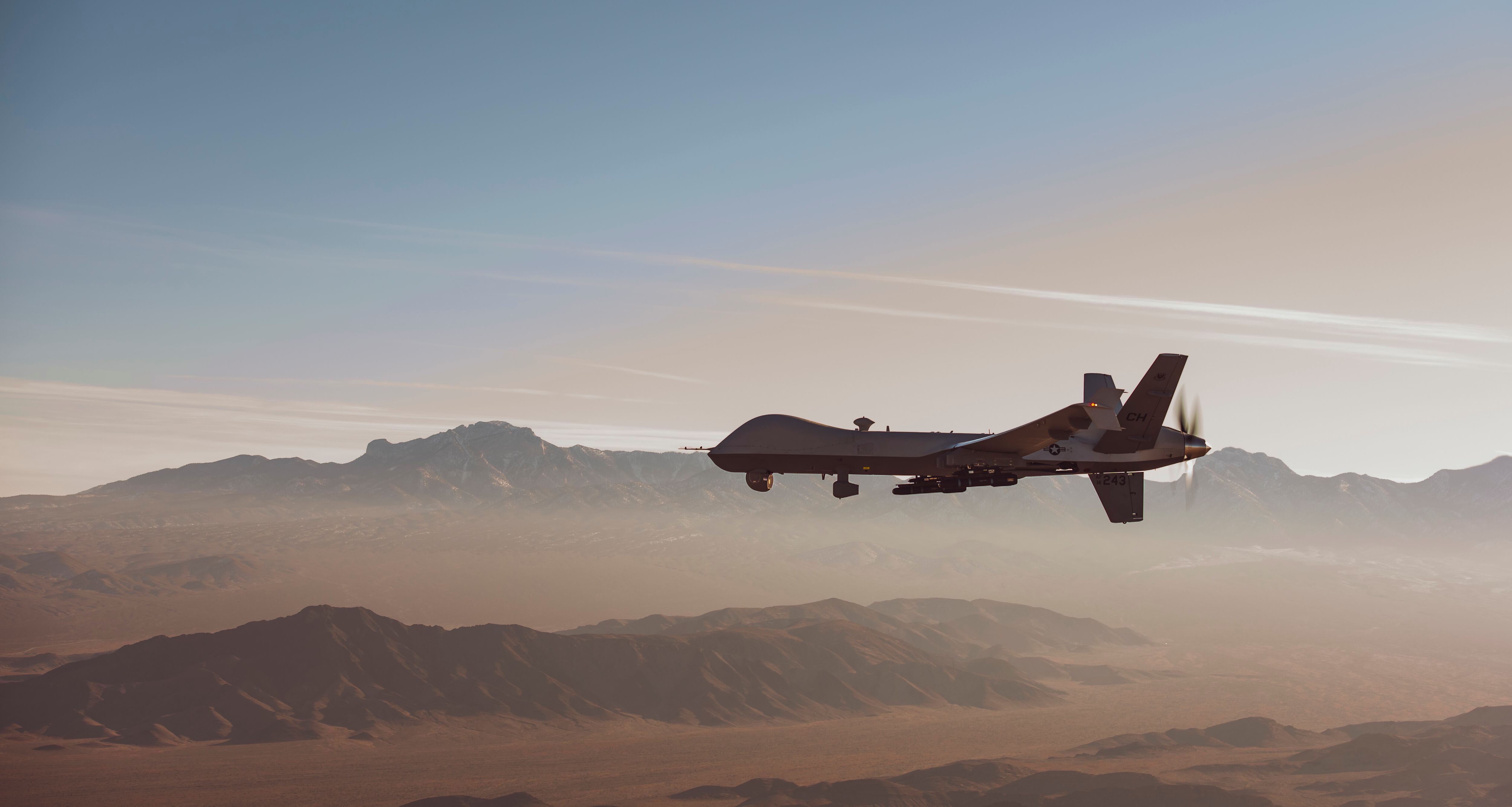LONDON – Britain's Ministry of Defence has signed a deal with General Atomics for the first three Protector remotely piloted air vehicles destined to equip the Royal Air Force with a replacement for its Reaper drone force.
A £65 million (U.S. $80 million) contract for three Protectors, the British version of the MQ-9B SkyGuardian was announced by Defence Secretary Ben Wallace during a virtual air power conference held by the RAF July 15.
Protector will fly further, hit harder and, crucially, be able to fly in unsegregated civilian airspace compared with the Reaper vehicles widely used by the British in Afghanistan and the Middle East over the last several years.
Three ground stations and other associated support equipment are also included in an initial deal that will see the first vehicle delivered to the British next year.
The initial vehicle will remain in the United States for test and evaluation until 2023, ahead of deploying to its UK base at RAF Waddington, eastern England.
Able to fly for up to 40 hours Protector is expected to enter service in 2024.
The aircraft will be armed with MBDA’s Brimstone missile and Raytheon UK’s Paveway IV precision-guided bomb, enhanced data links and detect-and-avoid technology.
The deal for Protector production includes an option on a further purchase of 13 drones.
A contract firming up the options is planned for April next year.
RELATED

An MoD spokesperson denied that breaking up the order into two parts was related to balancing the over-stretched budget for this year.
The cost of purchasing the remaining drones is put at around £180 million, or $230 million.
The MoD spokesperson said consideration is also being given to an additional acquisition of drones over and above the 16 vehicles already envisaged.
A total force of more than 20 Protectors was envisaged in the Conservative government's 2015 strategic defence and security review.
Now, the final numbers will likely be subject to the outcome of an integrated defense, foreign policy and security review now underway by the Conservatives.
Many people here think the already cash-strapped MoD will be a post-Covid-19 target for capability cuts as the government shifts its emphasis on defense equipment spending away from more conventional technologies into areas like space, cyber and artificial intelligence.
Protector has already been a victim of MoD financial pressures.
Sir Simon Bollom, the CEO of the Defence Equipment and Support arm of the MoD, alluded to the difficulties saying in an MoD statement his organization had "overcome considerable challenges" to keep the program on track.
The vehicle was originally slated to enter service with the RAF in 2018 but that was then put back until 2021 before the new date was agreed.
In announcing the deal defence secretary Ben Wallace said, „Protector will provide the RAF with vast global reach, meeting the UK’s defense and security needs for decades to come, and provide another increase to the unmanned inventory for the armed forces.“
Andrew Chuter is the United Kingdom correspondent for Defense News.








